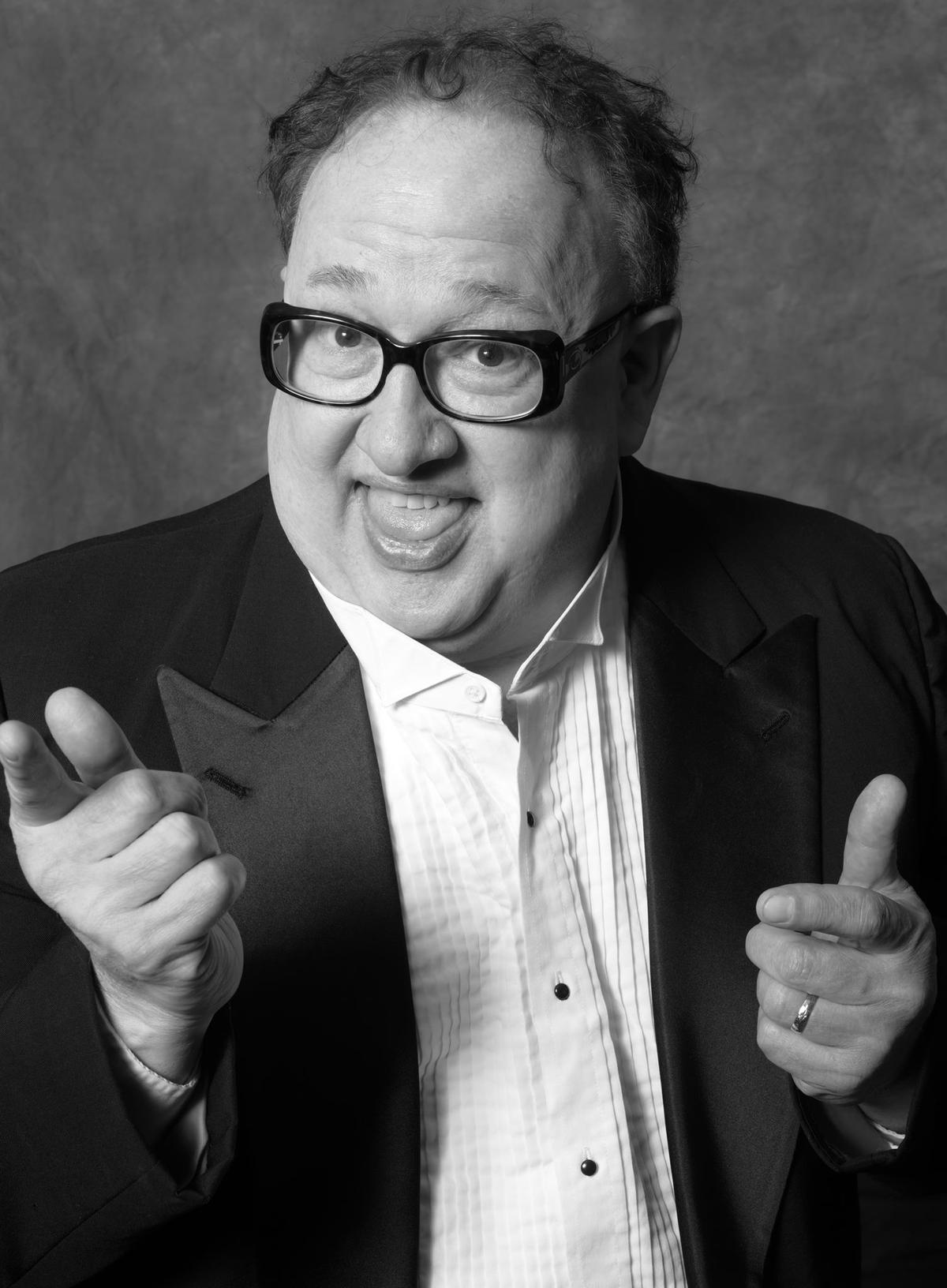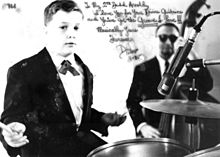Duffy Jackson, a drummer whose swinging exuberance propelled him from child stardom to a prolific career behind Lionel Hampton, Ella Fitzgerald, Lena Horne and many others, died on Wednesday in Nashville, Tenn. He was 67.
The cause was complications from hip surgery, Sandra Anton, his first cousin, tells WBGO.
Show business was a proud birthright for Jackson, who began to learn his craft before he was in grade school. His father, Chubby Jackson, was a bass player and bandleader who became a popular children’s television host, and Duffy earned a reputation as a boy wonder — initially through his appearances on Chubby Jackson's Little Rascals, which aired on ABC. At age 5, his picture appeared in DownBeat magazine, with a caption noting that “Duff, who has nicknamed himself Jazz Jackson, has only one ambition in life: to run away with Count Basie’s band.”
He realized that dream in his 20s, when he became the youngest member hired by Basie at the time. His bedrock time and tasteful embellishments were a natural fit for the band; here he is on the 1980 Pablo album Kansas City Shout, playing a tune cowritten by Basie and saxophonist Eddie “Cleanhead” Vinson.
Basie’s was just one of the many swinging bands that Jackson played with over the years. He worked with saxophonists Benny Carter, Sonny Stitt and Illinois Jacquet, along with vibraphonist Lionel Hampton and bassist Ray Brown. He also powered the band behind Sammy Davis, Jr. on network television for two years, and spent a year on tour with Lena Horne.
Among Jackson’s other close affiliations was one with Jamaican pianist Monty Alexander, beginning in the early 1970s with Here Comes the Sun. On that album’s title track, the Beatles hit by George Harrison, Jackson shows the ease with which he can hold down a funkier groove.
Still, Jackson considered himself something of a specialist. “I can play beautifully in a trio or whatever,” he said in a 2019 interview with the Nashville publication Music Mecca, “but when I’m in the driver’s seat of a big band, that’s where I can take you to places that you’ve probably never been before.”
Duff Clark Jackson was born on July 3, 1953 in Freeport, N.Y. The first indication of his musical talent came when he was a toddler, keeping time to records on a set of bongos. At 4, he began taking lessons with his first drum teacher — Don Lamond, who’d played alongside Chubby Jackson in the Woody Herman Orchestra. He also received encouragement from master big band drummers like Buddy Rich, Louis Bellson and Sonny Payne.
Jackson developed his precocious talent on the most public platform available at the time: by his own estimation, made 300 television appearances between the ages of 5 and 12. The primary outlet was his father’s Little Rascals show, airing in Chicago and New York. “My dad had access to the ABC local musicians on staff,” he recalled, “so at eight in the morning, you’d hear an 18-piece band swingin’ so hard. Now all the guys were all drunk or stoned or stayed up all night, but the thing is my dad had little kids dancing and singing in front of the band.”
The razzle-dazzle of an entertainer was always something Jackson could access musically, and in his later career he made it a trademark, as a drummer and a scat singer. Though there’s just one album under his name — Swing! Swing! Swing! on the Milestone label, made in the mid-‘90s — he was a seasoned bandleader, and a cornerstone of the jazz ecology in Nashville.
Jackson moved to Nashville in the late 2000s, from his previous home base in South Florida. He quickly found a niche in Music City — playing residencies at Rudy’s Jazz Room and Acme Feed and Seed; sitting in with the Time Jumpers at 3rd & Lindsley; and engaging with the Nashville Jazz Workshop, as both an instructor and a featured artist.
“Playing with Duffy felt like a glove,” pianist Lori Mechem, cofounder of the Nashville Jazz Workshop, tells WBGO. “His groove was infectious, and his sense of swing was flawless. He truly lived to play and loved everyone to the fullest.”
He is survived by his wife, Marina, and two sisters, Myno Tayloe and Jai Jackson.
Jackson often talked about his relationship to an audience in terms of crackling excitement. “Sometimes an audience will sit very quietly like an oil painting, and be subservient to the jazz musicians that demand your respect by not talking,” he told Music Mecca. “I want people to go nuts when I’m playing, as long as I can still hear myself. I want people to react.”


